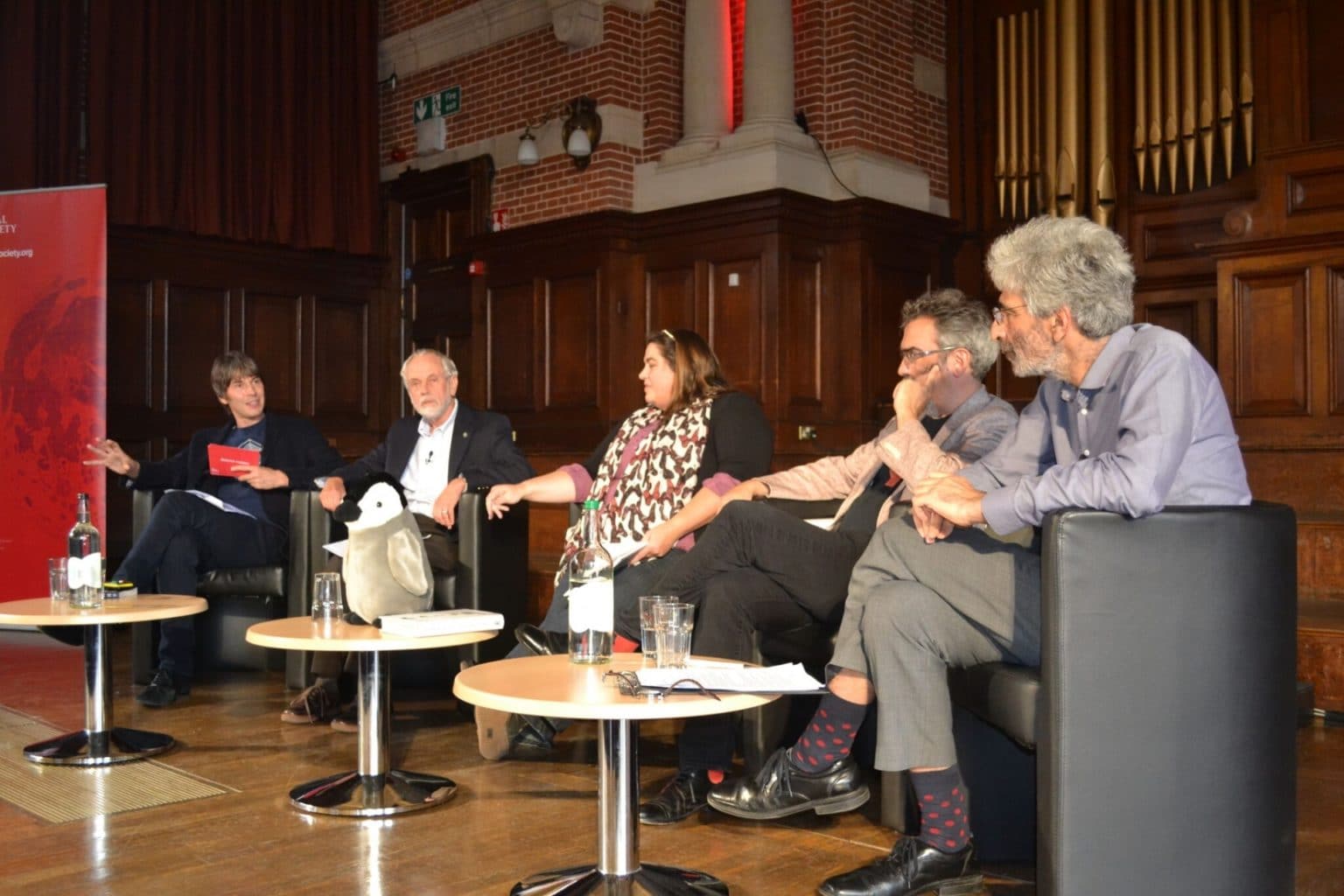A team of experts including Professor Brian Cox tore apart the arguments made by climate science deniers and discussed the implications for UK climate action in the wake of Brexit during a discussion panel at Reading University this weekend.
Chairing the panel, Cox, who recently shot down arguments made by Australian climate science denier Malcolm Roberts on television in August, raised the topic of climate science deniers. The panel highlighted the fact that even those experts who had attempted to disprove manmade global warming theory have failed.
The event was organised by the Royal Society, of which the celebrity physicist is the Professor of Public Engagement. Cox was joined by Professor Keith Shine FRS, Reigus Professor of Meteorology and Climate Science at Reading University, Professor Kate Jones, Chair of Ecology and Biodiversity at University College London, science writer and briefings editor at the Economist, Oliver Morton, and Professor Brian Hoskins FRS, chair of the Grantham Institute for Climate Change and former contributor to the IPCC.
“This is the last great challenge,” said Shine, talking about persuading sceptics to accept climate science.
He mentioned that in 2012 a group of sceptical scientists at Berkeley University attempted to disprove human’s impact on global warming. There are dedicated units in the UK and US that constantly develop and refine global temperature records, and the Berkeley scientists sought to prove the data had been compiled incorrectly.
“So they set about [compiling datasets] themselves,” said Shine. “And, hey presto, they came up with the same answers that these other organisations had.”
“The Intergovernmental Panel on Climate Change (IPCC) doesn’t used the word ‘equivocal’ very often or widely. But they say the fact the climate has changed is ‘unequivocal’.”
Jones pointed out that “we can already notice so much change in nature.” She said: “Flowers are coming out earlier, birds are laying eggs earlier, species are arriving from migration earlier, leaves are remaining on trees longer. We’ve all seen it. The question is what impact is this going to have in the long term?”
Brexit Agenda
The science experts also examined how Brexit might undermine the international collaboration on climate change.
Morton said it was “worrying” that the political agenda of those who were keenest on Brexit “tends to be very similar to the political agenda of the people who are least keen on acting on climate change – people like Owen Paterson.”
It was evident from the Conservative party conference that “that side of the party is doing pretty well” he warned. As DeSmog UK reported last week, the conference was riddled with organisations that campaign against regulation on issues like climate change.
Morton added: “In terms of domestic government policy the ascendance of that particular view is likely to be quite damaging.”
Moreover, our necessary transition towards a renewable electricity system would be easier if Britain were a part of a bigger system, he continued. “If the sun’s not shining [in Reading] it’s probably not shining in Slough. But it may well be shining in Stuttgart. If we can move electricity around more easily then you can move to renewables more easily.”
Hoskins warned that Brexit has made the UK’s contribution to the global climate change efforts “much more questionable.” He went on to dispute the argument by some climate policy sceptics, including by the Heritage Foundation at last week’s conference, that the UK’s emissions are so small relative to countries like China that it need not bother enforcing regulation.
“That’s absolute rubbish,” said Hoskins, who is currently also a member of the UK Committee on Climate Change and has previously contributed to the IPCC’s work.
“When we’ve gone to China and said ‘we’ve got this Climate Change Act and we’re really working on this’ they are really impressed. That has been very influential in their decisions.
“So when they now come to the table, China is really a major part of the solution whereas they were looked on as a major part of the problem. We have a lot of influence from what we do here and the important technologies we develop, which we are then able to send them round the world.”
Hoskins was asked whether the earth’s climate had passed a tipping point beyond which it could not return.
“We aren’t aware that there has been some irreversible change and we’ve gone to a new state,” he responded.
“I think we really are at the stage where if we can keep this change in temp to less than two degrees as set out in the Paris agreement then we can hope than we can cope with that.
“So it’s really not a case of ‘oh dear we’ve got to this point we may as well give up’. It’s actually a call for action because we may be able to get the climate to stay within the bounds that we can handle.”
Watch Brian Cox refute the claims of climate change denier Malcolm Roberts:
Photo: Victoria Seabrook
Subscribe to our newsletter
Stay up to date with DeSmog news and alerts







